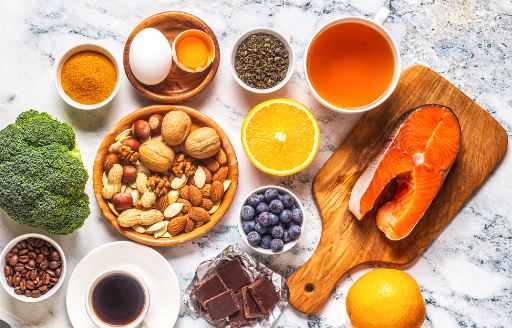

At my childhood age, my mum sent me to a nearby shopping center to buy some household items. On my way, I forgot some of the items that I was supposed to buy. What happened? I bought what I remembered. For the forgotten items I created answers or simply ask for reminders which was rare. I guess the problem was in memory-boosting foods that I didn’t consume enough at that time.
This experience pops up in my mind every time after realizing that what contributes to this apart from other things is food choices. What you feed your child with dictates whether s/he will have a good memory or not. If you’re not sure what this food is, relax, we’ve got you covered in this article. Keep reading and you will know about memory-boosting foods for kids.
In childhood development, memory plays a pivotal role. A child’s ability to learn, retain information, and apply knowledge depends greatly on their memory function. While various factors contribute to a child’s cognitive development, nutrition plays a crucial role in supporting and enhancing memory. By incorporating memory-boosting foods into a child’s diet, parents and caregivers can provide valuable support to help their young ones thrive academically and socially.
How does nutrition help in memory?
Research indicates a strong correlation between nutrition and cognitive function, including memory. The brain requires a constant supply of nutrients to function optimally, and certain foods are known to promote memory and brain health. A well-balanced diet rich in essential nutrients can positively impact a child’s ability to concentrate, learn, and remember.
Top Memory-Boosting Foods for Kids
Fatty Fish
Fatty fish such as salmon, mackerel, and sardines are excellent sources of omega-3 fatty acids, specifically DHA (docosahexaenoic acid). DHA is a key component of brain cell membranes and supports cognitive function, including memory.
Blueberries
These tiny fruits are packed with antioxidants, particularly flavonoids. Studies suggest that the antioxidants in blueberries can improve brain function and enhance memory, making them a delicious and nutritious snack option.
Whole Grains
Complex carbohydrates found in whole grains provide a steady supply of glucose, the primary energy source for the brain. This helps sustain concentration and memory throughout the day. Opt for whole grains like brown rice, quinoa, and whole wheat bread.
Eggs
Eggs are rich in choline, a nutrient that supports the production of acetylcholine, a neurotransmitter crucial for memory and learning. Including eggs in a child’s diet can contribute to healthy brain function.
Leafy Greens
Vegetables like spinach, kale, and broccoli are rich in vitamins and antioxidants that support brain health. They contain compounds like folate, vitamin K, and lutein, which improve cognitive function.
Nuts and Seeds
They contain vitamin E associated with reduced cognitive decline as kids age. Almonds, walnuts and chia seeds have two ways to consume. Either you incorporate into meals or consume as snacks.
Berries
Strawberries and raspberries have high antioxidants and vitamin C, which protect brain cells from damage and support cognitive function.
Yogurt
Probiotics found in yogurt and other fermented foods improve brain function. They may influence the gut-brain axis, a communication pathway between the gut and brain.
Lean Proteins
Lean sources of protein, such as lean meats, poultry, and beans, provide essential amino acids that support the production of neurotransmitters, including those related to memory and mood.
Dark Chocolate
Dark chocolate contains flavonoids and caffeine, both of which enhance cognitive function and alertness. But due to its calorie and sugar content, you should consume with moderation.
How to incorporate Memory-Boosting Foods
Consistency in making memory-boosting food may be a challenge in some circumstances. You have to do what it takes to achieve it. Consider the following tips:
Variety
Encourage a diverse range of foods to ensure that your child receives a spectrum of nutrients that support brain health.
Snack Smart
Replace sugary or processed snacks with nutritious options like fresh fruits, nuts, and yogurt.
Family Meals
Eating together as a family fosters healthy eating habits and provides an opportunity to share information and stories that can aid memory.
Hydration
Staying hydrated is vital for cognitive function. Water is the best choice, but herbal teas and diluted fruit juices are also suitable.
Cook Together
Involve your child in meal preparation. This can make them more interested in trying new foods and understanding the importance of nutrition.
Bottom-line
As parents and caregivers, we have the power to shape our children’s cognitive development by providing them with the right nutrients. Memory-boosting foods can play a significant role in nurturing young minds and setting the foundation for academic success and overall well-being. By incorporating these foods into a balanced diet, we empower our children to thrive both in and out of the classroom.
We care for health and that’s why we’ll always educate on food matters.





Can I simply just say what a relief to discover someone that actually understands what theyre talking about online. You actually realize how to bring an issue to light and make it important. A lot more people ought to look at this and understand this side of your story. I was surprised that you arent more popular because you surely have the gift.
דירות דיסקרטיות בפתח תקווה Dirk Moog
Thank you